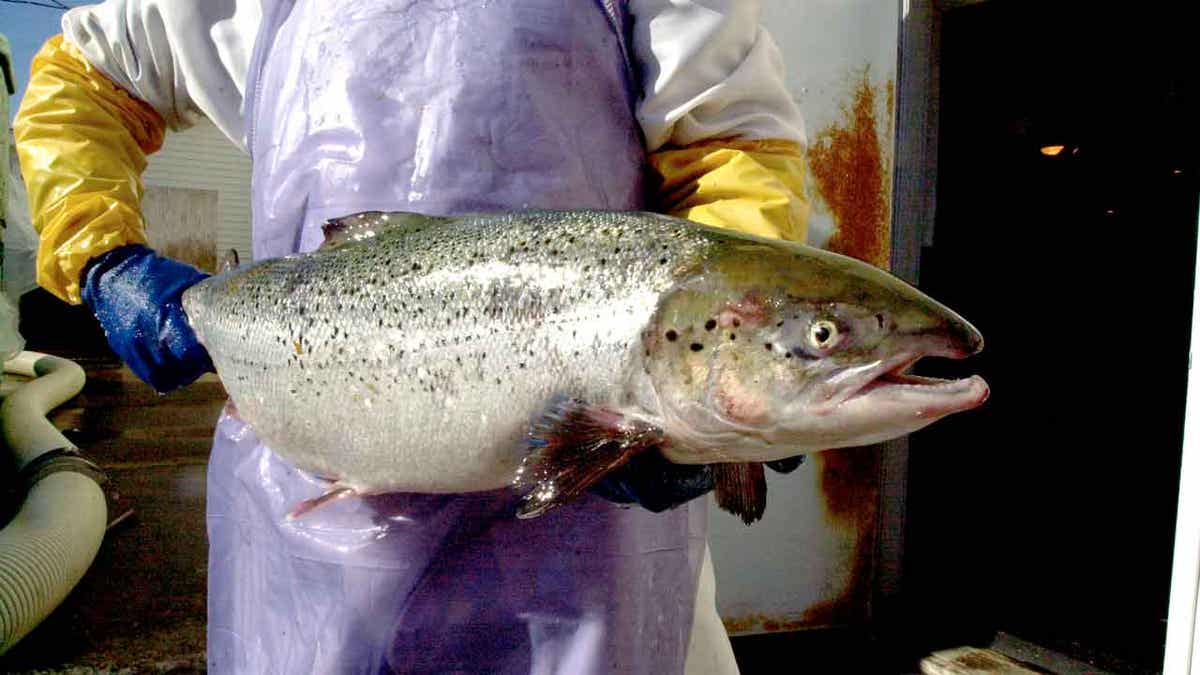Fox News Flash top headlines for April 25
Fox News Flash top headlines are here. Check out what's clicking on Foxnews.com.
A Maine fish hatchery will make changes to reduce the amount of phosphorus it discharges under the terms of a federal government settlement.
The U.S. Environmental Protection Agency said Tuesday it has reached an agreement with the U.S. Fish & Wildlife Service for the Craig Brook National Fish Hatchery in Orland. The settlement deals with phosphorus discharged to Alamoosook Lake.
The hatchery raises salmon to try to restore their populations. However, the hatchery has not met the required limitations on the amount of phosphorus liquid waste that is discharged into the water, EPA officials said. Those regulations are in place to prevent negative environmental consequences such as algal blooms and fish kills.
Fish farming operations often create emissions because fish waste contains phosphorus, as well as nitrogen.

A live 12 lb. salmon is pictured in Eastport, Maine. A fish hatchery in Maine has agreed to reduce the amount of phosphorus it discharges into Alamoosook Lake. (John Patriquin/Portland Press Herald via Getty Images)
The terms of the agreement state that the wildlife service will make operational changes that result in less phosphorus discharge. If the hatchery can't meet the limitations by 2025, it will need to make more changes, the EPA said in a statement.
Representatives for the hatchery did not return phone calls seeking comment.
CLICK HERE TO GET THE FOX NEWS APP
David Cash, regional administrator of EPA’s New England office, said harmful algal blooms "in New England waters have been increasing in recent years and need to be addressed in order to protect human health and the environment."










































